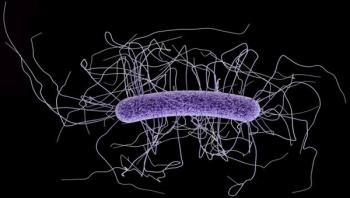
News


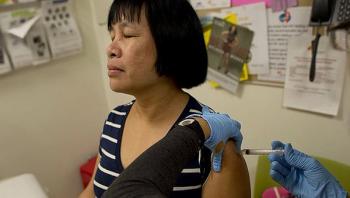
People who delay or refuse vaccines for themselves or their children are presenting a growing challenge for countries seeking to close the immunization gap. Globally, 1 in 5 children still do not receive routine life-saving immunizations, and an estimated 1.5 million children still die each year of diseases that could be prevented by vaccines that already exist, according to the World Health Organization (WHO).

Use of rapid response teams and strong community involvement in finding Ebola virus disease cases and contacts is yielding results in Sierra Leone. An epidemiological week has now passed with no new Ebola cases for the first time since the beginning of the outbreak.




Scientists report that lice populations in at least 25 states have developed resistance to over-the-counter treatments still widely recommended by doctors and schools. The researchers are presenting their work today at the 250th National Meeting & Exposition of the American Chemical Society (ACS), the world’s largest scientific society. The meeting features more than 9,000 presentations on a wide range of science topics and is being held here through Thursday.
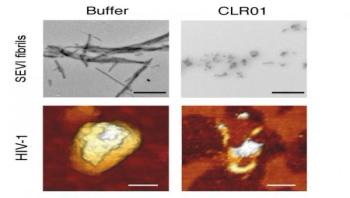
There may be two new ways to fight AIDS -- using a heat shock protein or a small molecule - to attack fibrils in semen associated with the human immunodeficiency virus (HIV) during the initial phases of infection, according to new research from the Perelman School of Medicine at the University of Pennsylvania. HIV is most commonly transmitted between individuals in semen, the male reproductive fluid, which contains deposits of protein fragments called amyloid fibrils. These fibrils can increase the transmission of HIV by helping the virus attach to the membrane surrounding human cells. The scientists surmise that therapies that reduce the levels of amyloid fibrils in semen might be able to reduce the transmission of HIV.
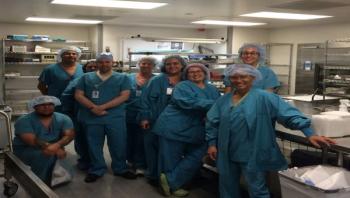
“Can’t you just hand-wash that piece of equipment and put it in the sterilizer?”That’s one question Tim Brooks hears often-especially from surgeons.The answer is usually, “No.”“I don’t think people really understand what it takes to get instruments back on the shelf,” says Brooks, BS, CSPM, senior manager of sterile processing at Banner University Medical Center in Tucson, Ariz. “Many doctors have no idea what the functions of the sterile processing department (SPD) are. The only real exposure they have is what they’ve been told by scrub techs and nurses in the OR suite. In my 28-plus years in this industry, I’ve only seen three surgeons come and walk through SPD. There is a standard of care for every patient. Every time we make an exception, we are changing things for the next patients.”


Human consumption of bacterially contaminated water causes millions of deaths each year throughout the world-primarily among children. While studying the material properties of paper as a graduate student, Theresa Dankovich, PhD, discovered and developed an inexpensive, simple and easily transportable nanotechnology-based method to purify drinking water. She calls it The Drinkable Book, and each page is impregnated with bacteria-killing metal nanoparticles.
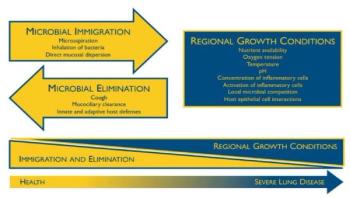
With every breath you take, microbes have a chance of making it into your lungs. But what happens when they get there? And why do dangerous lung infections like pneumonia happen in some people, but not others? Researchers at the University of Michigan Medical School have started to answer these questions by studying the microbiome of the lungs - the community of microscopic organisms are in constant contact with our respiratory system. By studying these bacterial communities, and how they change in illness, they hope to pave the way for new ways to prevent and fight lung infections in patients.

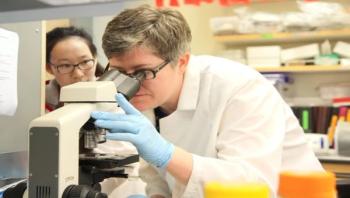
A scientific peek into bacteria boudoirs is revealing how "sex" among disease-causing microbes can lead different species or strains to become resistant to antibiotic medications. Dr. Kelli Palmer, assistant professor of biological sciences at the University of Texas at Dallas, is conducting research aimed at understanding the underlying mechanisms by which bacteria acquire antibiotic resistance genes from one another.








Researchers at Washington University School of Medicine in St. Louis have received a $7 million grant from the Bill & Melinda Gates Foundation aimed at eliminating river blindness and elephantiasis, two neglected tropical diseases that annually sicken millions.
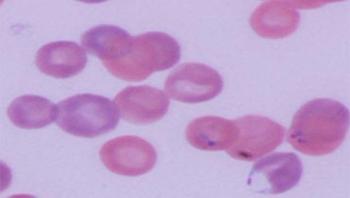
In equatorial Africa, a region of the globe known as the “lymphoma belt,” children are 10 times more likely than in other parts of the world to develop Burkitt’s lymphoma, a highly aggressive blood cancer that can be fatal if left untreated. That area is also plagued by high rates of malaria, and scientists have spent the last 50 years trying to understand how the two diseases are connected.
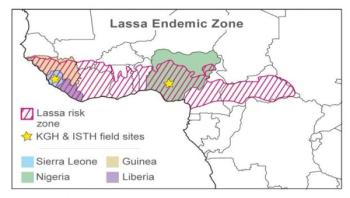
An international team of researchers has developed the largest genomic data set in the world on Lassa virus (LASV). The new genomic catalog contains nearly 200 viral genomes collected from patient samples in Sierra Leone and Nigeria, as well as field samples from the major animal reservoir, or host, of Lassa virus--the rodent Mastomys natalensis, also called the multimammate rat. The researchers show that LASV strains cluster into four major groups based on geographic location, with three in Nigeria and one in Sierra Leone, Guinea and Liberia. Although Lassa fever was first described in modern-day Nigeria in 1969, the current study also suggests that these four LASV strains originated from a common ancestral virus more than 1,000 years ago and spread across West Africa within the last several hundred years.


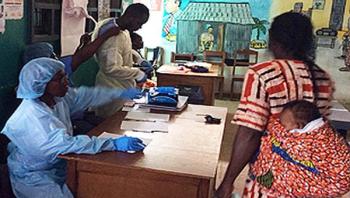

In the Horn of Africa, no wild polio cases have been reported since the last case in central Somalia on Aug. 11, 2014. Although it is not yet an official milestone on the path to polio-free certification, today marks one year since the last wild polio case was detected on the entire African continent, signaling important progress toward eradication.
